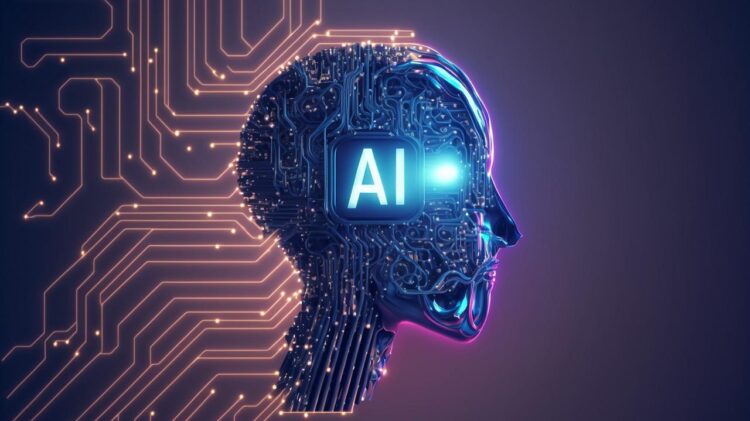Artificial Intelligence (AI) is no longer a futuristic concept; it is the most transformative technology shaping the global economy, driving innovation across every sector from healthcare and finance to manufacturing and creative arts. Consequently, the demand for professionals skilled in Machine Learning (ML), Deep Learning (DL), and AI application far outstrips the current supply. For anyone looking to secure a high-demand, future-proof career, learning AI is the most critical professional investment today. Fortunately, the barrier to entry has never been lower, thanks to a proliferation of high-quality, comprehensive online courses and specializations. Choosing the right educational path, however, is crucial. The best online course must offer rigorous content, practical projects, and verifiable credentials.
This extensive guide provides a deep analysis of the leading online AI courses and specializations, examining their core focus, prerequisites, career pathways, and the essential knowledge required to master this rapidly evolving field.
Defining Your AI Learning Journey: Three Key Roles
Before selecting a course, you must define your career goal. AI skills are diverse and generally fall into three main tracks, each requiring a specific learning focus.
1. The AI/ML Researcher or Scientist
- Focus: Developing new algorithms, advancing the theoretical understanding of deep learning models, and publishing novel research.
- Required Skills: Strong mathematical foundation (Calculus, Linear Algebra, Probability), advanced statistics, and deep expertise in model architecture.
- Ideal Course Path: University-level specializations with heavy theoretical and mathematical components.
2. The ML Engineer (MLE)
- Focus: Building, deploying, and maintaining AI models in production environments (integrating models into software applications, cloud infrastructure, and CI/CD pipelines).
- Required Skills: Proficiency in Python, software engineering best practices, cloud computing (AWS/Azure/GCP), and MLOps (DevOps for ML).
- Ideal Course Path: Practical, project-based courses focusing on tools, scalability, and deployment frameworks.
3. The Data Analyst/Business Intelligence Specialist
- Focus: Utilizing existing ML libraries and models to extract insights from data, predict business trends, and inform strategic decisions, rather than building the models from scratch.
- Required Skills: Data cleaning (Pandas/SQL), data visualization, basic predictive modeling (scikit-learn), and strong domain knowledge.
- Ideal Course Path: Introductory courses focusing on practical application and popular ML libraries.
The Gold Standard: Top Comprehensive AI Specializations
These courses are widely recognized for their depth, quality, and industry relevance, often serving as the primary credential for entry-level AI roles.
A. Andrew Ng’s Machine Learning Specialization (Coursera)
- Focus: The foundational course in the field. It provides a rigorous introduction to traditional ML concepts, including supervised learning, unsupervised learning, and best practices in ML system design.
- Prerequisites: High school math level; programming experience is helpful but not strictly required (uses Python/Octave for assignments).
- Key Modules: Linear Regression, Logistic Regression, Neural Networks, Bias/Variance Trade-off, and practical advice for debugging ML models.
- Career Impact: Essential for building a strong theoretical bedrock. Often considered the non-negotiable starting point for anyone serious about the field.
B. Deep Learning Specialization (Andrew Ng – Coursera)
- Focus: The logical next step after the foundational course. This specialization dives deep into the complex world of modern Deep Learning, the engine behind current AI breakthroughs.
- Prerequisites: Solid understanding of basic ML concepts, proficiency in Python, and basic linear algebra.
- Key Modules:
- Neural Network Architecture: How to build and train deep neural networks.
- Convolutional Neural Networks (CNNs): Applied heavily to image recognition and computer vision.
- Recurrent Neural Networks (RNNs) and Transformers: Applied to sequence data, natural language processing (NLP), and large language models (LLMs).
- Career Impact: Directly prepares learners for roles in computer vision and NLP, the two most in-demand Deep Learning applications.
C. TensorFlow Developer Professional Certificate (Coursera/TensorFlow)
- Focus: Practical, production-focused training on the TensorFlow framework, one of the two dominant tools (along with PyTorch) for building and deploying ML models.
- Prerequisites: Intermediate Python skills and basic ML knowledge.
- Key Modules: Model construction using Keras, deployment strategies for mobile/web (TensorFlow Lite/JS), and advanced sequence modeling.
- Career Impact: Directly certifies proficiency in a key industry tool, highly valued for ML Engineer roles focusing on implementation and deployment.
Specialized Pathways: Diving Deeper into AI Subfields
As the AI field matures, specialized knowledge in critical sub-disciplines becomes highly lucrative.
A. Natural Language Processing (NLP) Specialization (Coursera)
- Focus: Mastering the techniques used to enable computers to understand, interpret, and generate human language. This is crucial for building chatbots, translation services, and LLMs.
- Key Skills Developed: Text classification, sentiment analysis, word vector representations (Word2Vec), sequence models, and the transformer architecture.
- Importance: The rapid rise of generative AI makes NLP expertise arguably the hottest area in AI today. Graduates are equipped to work on LLM fine-tuning and application development.
B. Practical Deep Learning for Coders (fast.ai)
- Focus: An alternative, “code-first” approach that emphasizes practical application and getting models working quickly, utilizing the PyTorch framework.
- Methodology: Less theoretical mathematics and more hands-on coding, starting with working models and later explaining the theory behind them.
- Unique Value: Highly focused on current best practices and state-of-the-art models, often updated quickly to reflect new research breakthroughs. Excellent for software engineers looking to transition into ML quickly.
C. AI for Medicine Specialization (Coursera)
- Focus: Applying Deep Learning techniques to solve complex problems in the healthcare domain, including medical imaging (radiology), patient diagnosis, and genomics.
- Key Skills Developed: Interpretation of 3D medical scans, ethical considerations in medical AI, and building clinical risk prediction models.
- Career Impact: Provides the critical bridge between AI expertise and medical domain knowledge, a highly profitable and impactful niche.
 Essential Prerequisites: Building the AI Foundation
Essential Prerequisites: Building the AI Foundation
Success in AI is built upon a solid foundation in core technical disciplines. Investing time in these prerequisites will drastically improve the outcome of any specialized course.
1. Programming Proficiency (Python)
- Language Mastery: Python is the undisputed lingua franca of AI due to its readability, vast ecosystem, and rich libraries. Proficiency should extend beyond basic syntax to include complex data structures and object-oriented programming (OOP).
- Essential Libraries: Mastery of NumPy (for numerical operations), Pandas (for data manipulation and analysis), and Matplotlib/Seaborn (for visualization).
2. Mathematics (The Engine of AI)
- Linear Algebra: Essential for understanding vectors, matrices, and tensors—the fundamental data structures used in all neural networks. Concepts like matrix multiplication and eigenvalues are critical.
- Calculus: Necessary for grasping the core mechanics of how neural networks learn, specifically the concept of gradient descent and the backpropagation algorithm.
- Probability and Statistics: Crucial for model evaluation, understanding uncertainty, Bayesian statistics, and techniques like Maximum Likelihood Estimation.
3. Data Science Fundamentals (SQL and Data Wrangling)
- SQL (Structured Query Language): Most real-world data resides in databases. A strong command of SQL is necessary to extract, filter, and preprocess data before it can be fed into an ML model.
- Feature Engineering: The process of transforming raw data into features that better represent the underlying problem to the predictive models. This is often the most time-consuming and skill-dependent part of an ML project.
The Strategic Learning Framework: Beyond Certificates
A certificate is a door opener, but true mastery and career success require a disciplined, project-focused approach that goes beyond the classroom.
A. The Project-Driven Portfolio
- Kaggle Competitions: Actively participate in Kaggle, a platform for data science and ML competitions. Solving real-world, complex problems against global competitors is the best form of practical experience.
- End-to-End Projects: Build and deploy at least three major, end-to-end projects that cover the entire MLOps lifecycle: data acquisition, model training, performance evaluation, and final deployment to a cloud service (e.g., building a sentiment analyzer and deploying it as a web API).
- GitHub Visibility: Maintain a clean, professional GitHub repository for all projects, using clear documentation and read-me files. Your portfolio is your resume in the AI world.
B. Embracing MLOps (The Production Reality)
MLOps (Machine Learning Operations) is the discipline of reliably and efficiently deploying and maintaining ML models in production. No serious tech company hires an ML Engineer without MLOps skills.
- Cloud Platforms: Get hands-on experience with the ML service stacks of major cloud providers: AWS SageMaker, Google Cloud AI Platform, or Azure Machine Learning.
- Version Control and CI/CD: Learn to use Git for code version control and integrate tools like Jenkins or GitHub Actions for continuous integration and deployment of ML pipelines.
- Monitoring: Understand how to monitor model performance drift, data drift, and latency in a live production environment.
C. Continuous Learning and Generative AI
The field of AI is characterized by breathtaking speed. The core skill is the ability to adapt.
- Read Research Papers: Regularly follow key conferences (NeurIPS, ICML, ACL) and read the corresponding papers to stay abreast of the state-of-the-art developments (e.g., the latest transformer architectures or reinforcement learning techniques).
- Mastering Prompts: For the immediate future, mastering prompt engineering and the fine-tuning of existing LLMs (like GPT-4 or open-source models) is a vital commercial skill.
- Ethical AI (AI Safety): Develop a strong understanding of the ethical implications of AI, including bias mitigation, fairness, and transparency. This is becoming a major regulatory and corporate requirement.
 Conclusion: The Investment in Intelligence Pays Off
Conclusion: The Investment in Intelligence Pays Off
The online learning ecosystem for AI has matured, offering pathways that rival traditional university education in quality and practical relevance. From the mathematical rigor of Andrew Ng’s foundational courses to the practical deployment focus of the fast.ai and TensorFlow programs, the resources are abundant. However, simply completing a course is insufficient. The true mastery of AI requires a strategic, project-focused approach built upon strong mathematical and programming prerequisites. By committing to this comprehensive learning framework, mastering MLOps, and constantly updating their knowledge, aspiring professionals can secure their position at the forefront of the most exciting and rewarding technological revolution of our time.






